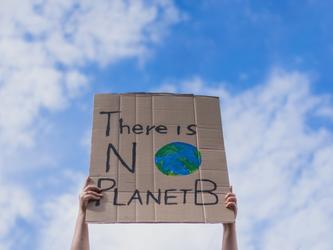Market research should use its influence to address climate emergency, finds sector survey
In April and May 2021, the network, set up by industry members, conducted an online survey of 529 research and insight professionals based in the UK, with the aim of shaping the view of how to address climate change as a sector.
The majority of respondents ( 94%) agreed that the planet is facing an environmental crisis, and 88% agreed that we are heading for ‘environmental disaster’ unless we change habits quickly.
88% agreed that politicians talk about climate change a lot but don’t do enough to address it, and another 88% agreed that climate change should be prioritised in post-pandemic economic recovery efforts.
Speaking at an MRS webinar yesterday ( 7th July) on the results, Louise McLaren, board director at Truth Consulting and ICC founding member, said: “The sense that not enough action is happening systemically will also play into the role we play as a sector.
“If we feel like it’s a lost cause and we can’t trust the government to take action quickly enough, and we’re overwhelmed by climate anxiety, we are at risk of switching off.”
When it comes to the impact of the sector, three-quarters of those surveyed ( 76%) agreed that market research has the same level of responsibility to address climate change as other service sectors, including banking or law, while 76% agreed that the sector should use its influence more effectively.
However, 44% of respondents said climate change is not an organisational priority, almost half ( 48%) said it is expensive, 36% said it is time-consuming and 38% agreed it is difficult.
Additionally, 41% agreed that they don’t feel confident that they have the necessary knowledge to make a difference in their working life, while 44% said they don’t know where to begin.
“We’re at a stage where clients are having to work out how to translate corporate strategies and ESG to help people make better choices in their daily lives,” said McLaren. “We have influence and agency – we have the potential to have a voice and address climate change through more than just how we operate.”
Examples of what that could look like include influencing client organisations to consider climate more actively in their work – for example, in product development and communications – and 72% of respondents agreed that the sector could lessen its impact on the environment in this way.
However, when respondents were asked what their companies currently do, only 10% said they had set clear boundaries around clients or sectors they will work with for environmental or sustainable reasons.
There is an opportunity for researchers to reframe the ‘say-do gap’ – where people state they will do one thing and then do another – in the context of sustainability, said McLaren. “Quite often when we notice the difference between intention and willingness and real behaviour, there is a tendency to put the blame on consumers for not following through on things and there can be a tendency to suggest the consumer is lazy and not have the energy to make the sacrifices and trade-offs. That notion of the ‘say-do gap’ is really problematic. It puts the blame on individuals and fails to recognise that businesses and brands have a responsibility to bridge that gap.”
If researchers can recognise that the issues they themselves experience – whether related to affordability, convenience, or confusion – they can bring that understanding to the issues that any consumer will be experiencing, according to McLaren.
The biggest area that researchers felt that the sector could have an impact was in minimising travel for field work and meetings, working virtually where possible.
While operational issues such as recycling in offices, printing less paper and travelling less are a “tiny drop in the ocean”, said McLaren, it’s important for organisations to have such environmental policies in place as otherwise, they risk not having legitimacy in client conversations about better practices.
McLaren said: “We can translate the historical orientation towards growth and selling more stuff into thinking differently about the role businesses can play. We have the scope to be the bridge between corporate sustainability strategies and what the business makes, does and communicates to the people it serves.
“We need to be the voice of the consumer on climate change. A lot of the technology that is needed is already there, but it’s about changing our systems, infrastructures and ways of living, and the options that we give people. Consumer engagement through insight is going to be a crucial lever in that change and there’s huge potential for the industry to have a bigger role in that journey.”
The Insight Climate Collective was formed in late 2020 and a full report on the research findings and implications is due to be published later in the year.
Nick Baker, chief executive at Savanta, and ICC founding member, said: “We felt that as an industry we should be grabbing the reins on this and also helping brands. The ICC has set out to look at what we can do to achieve net zero by 2028 – it’s a stretching goal but if we don’t start, we won’t get anywhere.”
The MRS recently launched a Net Zero Pledge for insight businesses, developed by its sustainability council.

We hope you enjoyed this article.
Research Live is published by MRS.
The Market Research Society (MRS) exists to promote and protect the research sector, showcasing how research delivers impact for businesses and government.
Members of MRS enjoy many benefits including tailoured policy guidance, discounts on training and conferences, and access to member-only content.
For example, there's an archive of winning case studies from over a decade of MRS Awards.
Find out more about the benefits of joining MRS here.














0 Comments